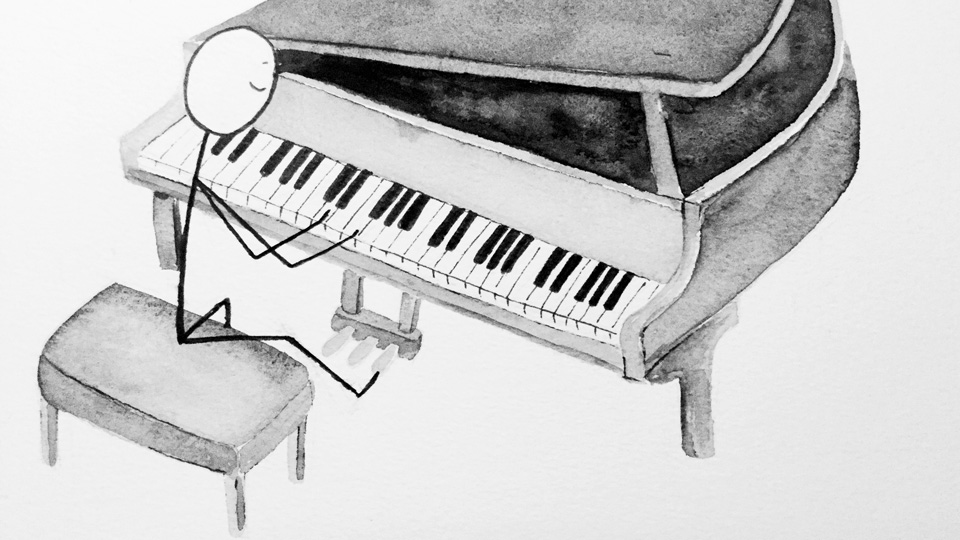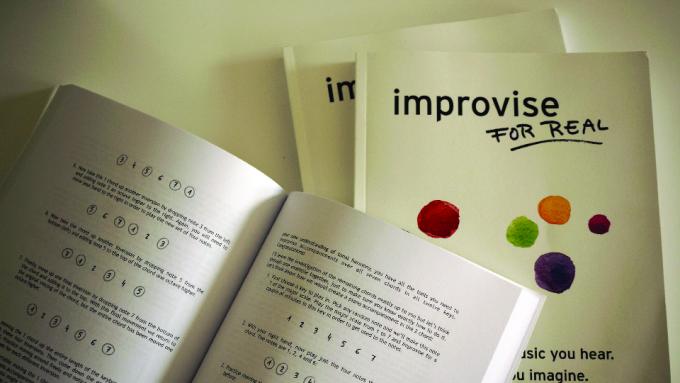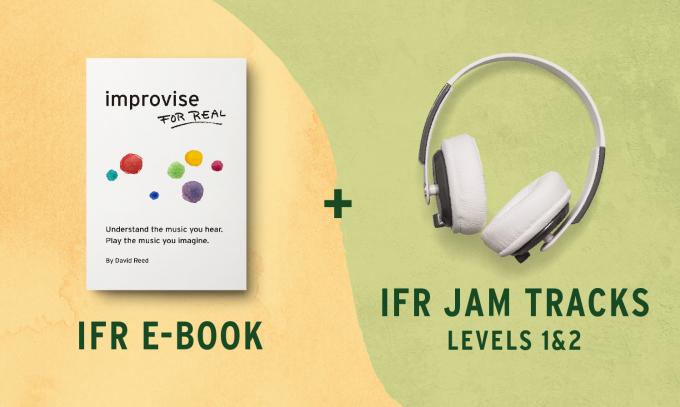You may have heard that you need to understand a lot of music theory in order to improvise. But what if it's the other way around?
That might sound confusing at first, but I believe that getting clear about this could potentially save you YEARS of frustration and wasted time. In fact, I think that just understanding this one simple idea could be one of the most important turning points in your musical learning.
Here's how I describe it in “Improvise for Real”:
--------------
The power of direct experience
But why is music theory so dense and complicated? Why is there this contradiction between the elegant beauty of music and the clumsy drudgery of music theory?
I believe that the problem is not with music theory itself, but with our attempts to use it as a substitute for direct, personal experience.
Imagine for a moment that I wanted to know everything there is to know about your home town where you grew up. You may not realize what an expert you are on the subject of your home town. But we would both be in for a long night if you had to explain it all to me. For starters there’s your family’s house (don’t forget all the different rooms), your friends’ houses, your school with all its classrooms, your favorite places to play outside, all the streets and street corners, all the restaurants, the grocery store, the bank, the post office and lots more places that only you would know about. I’ll bet there are literally hundreds of places that you can clearly remember if you think about it long enough.
But that’s just the beginning. Even if you narrow it down to just one of these locations, you find that there are still countless details to explain: floor, ceiling, walls, doors and windows, light fixtures, furniture and perhaps dozens of small objects.
And it doesn’t even stop there. Even if you focus on just one of the objects in the room, you still find that words are not even adequate to describe completely this one single thing!
So much for the power of words.
But now imagine if you could just take me there. You could show me around and take me to all those places that you wanted to share with me. In just the first few minutes alone the sudden rush of sights, sounds and smells would already fill my mind with more details than you could ever possibly give me in words.
Your home town is a good metaphor for harmony. There is nothing particularly difficult about harmony, but it’s just not the kind of thing that can be easily reduced to words and theories. This beautiful world of sounds must be experienced first-hand. If you just go there and experience this world for yourself, you will find that you really don’t need a whole lot of theory to keep track of where things are. But if you remain outside this world and try to learn about it through second-hand explanations, if you try to reduce this rich world of sounds and sensations to a bunch of formulas and definitions, that’s when you find yourself before an impossible task.
This is why music theory seems so difficult and confusing. It’s just not possible to get any real understanding of music unless you experience it for yourself. You need to create the sounds yourself and hear them over and over again. You need to play with them freely, combining them in all different ways. In other words, you need to improvise. Most people falsely believe that you need to understand harmony before you can improvise. But actually it’s the other way around. You need to improvise in order to understand harmony.
So really, learning to improvise is not the “goal” of the IFR method. Improvisation is the method. It’s how we investigate new concepts and discover their meaning for ourselves. My job is to organize your experiences so that you gradually come to have an understanding of our entire musical system. Your job is simply to play with and enjoy whatever sounds we happen to be studying at the moment. If we both do our jobs correctly, then your practicing should always be enjoyable, interesting and fun. But you will also be developing a deep personal mastery of harmony that cannot be explained in words.


